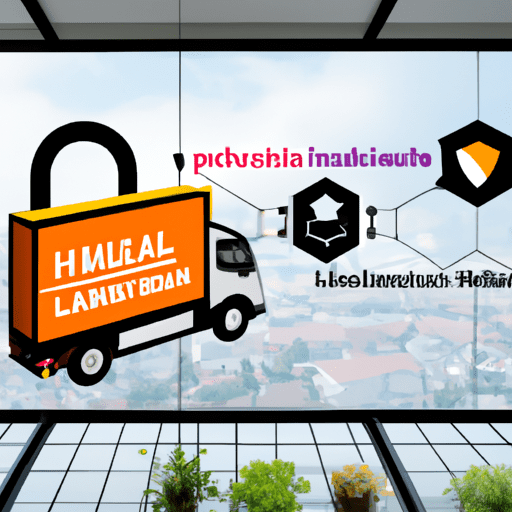Halal logistics refers to the process of managing the distribution, storage, and transportation of halal products that comply with Islamic law. Halal logistics is a rapidly growing industry, and its potential has not been fully realized. The global halal market is estimated to be worth $2.2 trillion, with the demand for halal products expected to continue growing.
Halal logistics is an important part of the overall halal supply chain. It involves the transportation and handling of halal products in a way that ensures their purity and quality. Halal logistics also involves complying with halal certification requirements, such as ensuring that the products are free from haram (forbidden) ingredients and that the transport and storage facilities are clean and free from contamination.
Unlocking the potential of halal logistics is crucial for the growth and development of the halal industry. Here are some ways in which halal logistics can be optimized:
1. Halal compliance
Halal compliance is at the heart of halal logistics. It is important to ensure that the halal products are handled, stored and transported in a way that meets Islamic law requirements. Halal certification is mandatory for the products to be accepted by Muslim consumers. Halal compliance not only ensures that the products are pure and halal, but it also fosters confidence and trust between the supplier and the customer.
Halal certification is the process of verifying that the products comply with Islamic law. Halal certification bodies are responsible for monitoring and inspecting the supply chain, including the transport and storage of the products. Halal logistics providers need to adhere to the certification requirements, ensure that the products are correctly labeled and provide detailed documentation that shows the products have been handled in compliance with halal standards.
2. Traceability
Traceability is a critical aspect of the halal supply chain, and it is particularly important in the logistics sector. Halal logistics providers need to ensure that the products are traceable from the point of origin to the point of consumption. This includes the tracking of the products during the transportation and storage phases.
Traceability not only ensures that the products are halal, but it also helps to identify issues and resolve them quickly. In the event of a product recall or contamination, traceability allows for speedy identification of affected products and minimizes the impact on consumers. This is especially important in the halal industry, where consumers place a high value on the purity and safety of the products they consume.
3. Efficient transport and storage
Efficient transport and storage are key to unlocking the potential of halal logistics. Halal logistics providers need to ensure that the products are transported and stored in a way that maintains their quality and purity. This includes ensuring that the products are transported at the correct temperature, are not damaged during transit, and are stored in suitable conditions.
Efficient transport and storage also help to reduce costs and improve delivery times. Halal logistics providers need to streamline their operations and adopt technology that improves efficiency, such as RFID (radio-frequency identification) tracking systems, to ensure that the products are delivered to their destination on time and in good condition.
4. Innovation and technology
Innovation and technology have the potential to revolutionize the halal logistics industry. Halal logistics providers need to adopt technology that improves efficiency, enhances traceability, and reduces costs. This includes using IoT (Internet of Things) devices to monitor the transport and storage of the products, and blockchain technology to improve traceability.
The use of drones for the delivery of halal products is also a possibility, particularly in remote areas where traditional transport methods are not feasible. The adoption of automation and robotics can also help to improve efficiency and reduce labor costs.
5. Developing the workforce
The development of the workforce is a crucial element in unlocking the potential of halal logistics. Halal logistics providers need to invest in the training and development of their workforce to ensure that they have the skills and knowledge needed to handle and transport halal products correctly.
This includes providing training on halal certification requirements, food safety, and hygiene, as well as other skills such as transport management and logistics. Investing in the workforce not only ensures that the products are handled correctly, but it also fosters a culture of continuous improvement and innovation within the organization.
Conclusion
Halal logistics has the potential to play a significant role in the growth and development of the halal industry. Unlocking the potential of halal logistics requires halal compliance, traceability, efficient transport and storage, innovation and technology, and workforce development.
The development of the halal logistics industry requires collaboration between all stakeholders in the halal supply chain, including suppliers, logistics providers, certification bodies, and consumers. Working together, the halal industry can unlock the potential of halal logistics and ensure that halal products are delivered to consumers in a way that meets their halal requirements and expectations.
